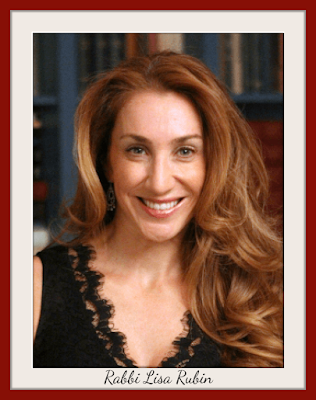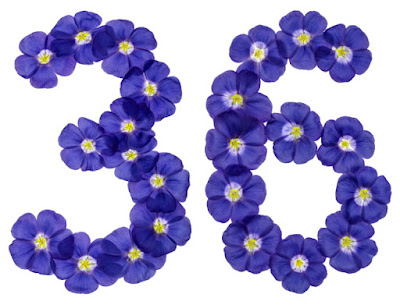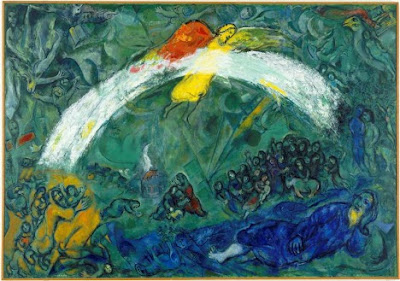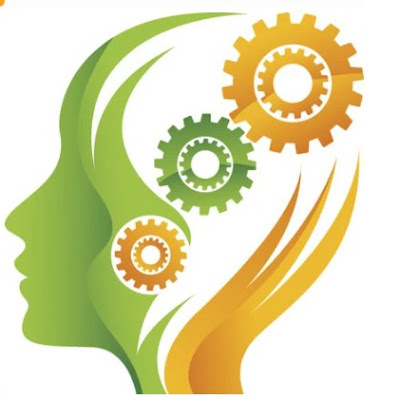Righteous Individuals: May we all be inscribed and sealed for life!
ICYMI - Here is an inspired and strongly-delivered Rosh Hashanah 5784 sermon - One of Thirty-Six - by the one and only Rabbi Lisa Rubin, the New York's Central Synagogue's Director of the Center for Exploring Judaism.
One of Thirty-Six
Rabbi Lisa Rubin Rosh HaShanah 5784
A couple in our community recently suffered a tragic loss. Their first child was born prematurely and only survived for two days. It goes without saying that the aftermath of losing a baby is a profound and indescribable anguish.
As I engaged with the funeral home very late that night, they explained what would normally happen: the baby’s body would go to the hospital morgue and then be transported in the morning.
The idea of this precious newborn in a morgue felt unsettling and grim. The family was distraught over this protocol, and I wasn’t comfortable with it, either.
I found it incredible that a stranger would extend such an offer—an act of kindness that felt nearly messianic. It was a balm of humanity, a healing touch to tend to a gaping wound.
I accepted her generosity on behalf of the family,
and was deeply moved by her compassion.
Within Judaism there exists a captivating myth to describe a person who would perform such a selfless act. According to this legend, there are thirty-six righteous individuals living at any given time, whose merit sustains the world’s existence.
These thirty-six people exemplify
kindness, selflessness, and humility.
Without them, the tradition says, the world would be susceptible to destruction by God because of the wickedness of humankind. These honorable people are known as Lamed Vavniks, derived from the number thirty-six in Hebrew. Double Chai.
The identities of Lamed Vavniks are not known as they walk among us, so they are called the “Hidden Righteous.” Their deeds often go unrecognized. They themselves may not even know of their role! Their humility prevents them from seeing the deep impact of their virtuous behavior.
Even more intriguing is the myth’s notion that the count of thirty-six is not fixed. Individuals can come in and out of this role.
Someone can be righteous for their whole life or for five minutes.
The underlying concept is that at any given time, thirty-six people need to be acting virtuously to justify the purpose of civilization in the eyes of the divine. Without them, the world would meet its demise.
The idea that God would destroy the world for its wickedness is established early in the Bible. We see it in the generation of Noah: God floods the Earth because humankind has reached an impossible level of depravity.
And the narrative repeats itself in the story of Sodom and Gomorrah. This time, Abraham, concerned for the fate of the virtuous people living there, begins to negotiate with God. If there are 50 good people, will God save the cities? Yes. What about 40? Yes. Abraham gets God down to ten.
Ten worthy individuals is all it would take. They are not found, of course, but the principle has been established. A crucial point is made: for the sake of a few, God might spare the many.
The hope embedded in this legend is captivating: any one of us could be a Lamed Vavnik, or encounter one. It teaches how intrinsically necessary we all are. We each play a role in the ongoing creation and improvement of the world. Every act can be meaningful. It validates a Talmudic teaching:
“Treat no one lightly and think nothing is useless,
for everyone has his moment and everything has its place.”
But then Rabbi Rubin dives into
David Brooks' recent column in The Atlantic.
But know that Rabbi Rubin's delivery is everything.
These ideas resonate in our current climate. The past year has left many feeling disheartened. A sense of unease pervades. Beyond the persistent issues like polarizing politics, conflicts abroad, anti-Semitism, and environmental crises, a new level of discord is the norm.
Acts of kindness and selflessness appear increasingly spare. Mean-spiritedness and intolerance have left a significant portion of our country feeling calloused and alienated.
Every generation has their zeitgest issue. Is ours that people cannot interact without animosity? That we have a true disdain for each other? Are we divided into hostile factions that will never reconcile?
David Brooks skillfully captures in his recent piece [How America Got Mean] for The Atlantic that
the words that define our age reek of menace:
conspiracy, polarization, mass shootings, trauma, safe spaces.
Brooks argues that America has lost its moral compass. We simply don’t know, he says, how to treat each other with compassion or consideration any more.
Brooks asks how our nation will find its ethical footing again; how we can help people restrain their selfishness. He writes,
How do we keep
our evolutionarily-conferred egotism
under control?
How do you welcome a neighbor into your community?
How do you disagree with someone constructively?
Finally, he asks how to guide people toward purpose and ideals in life:
What moral institutions are teaching us
to serve the poor, protect the nation, love our neighbor?
Judaism has been wrestling with, and answering, these questions for millennia. We may not have a panacea, but we do have a blueprint.
Jewish tradition and sources are filled with ethical principles. Some are very well known: honor your parents. Don’t steal. Don’t put a stumbling block before the blind. Others are less well known: Don’t hold a worker’s wages until morning. Rest your animals, too, on Shabbat. A handful of laws proscribing decency may not attract attention.
But when we amass hundreds of such dictates requiring consideration for our fellow human beings (and animals!), we paint a picture of a morally focused people. Judaism stands as an ancient and ongoing beacon of virtue, which has developed the most extensive system of legislated good acts in human history!
God doesn’t demand moral excellence
without providing a roadmap to achieve it.
Rabbi Hillel was one of the most brilliant, audacious legal scholars of the Talmud. In a renowned tale, a man approaches him, seeking conversion to Judaism under the condition that he be taught the entire Torah while standing on one foot. Hillel doesn’t falter. He responds,
That which is hateful to you, do not do to your fellow.
The rest is commentary. Go and study.
This response is remarkable. Hillel doesn’t talk to the man about monotheism, Shabbat, or prayer. He restricts himself to a description of Judaism’s ethical essence!
Hillel believes if the man can grasp this fundamental principle of being considerate to others, he can be Jewish, and the rest will be commentary. It’s a return to the basics that enables us to concentrate on one of the quintessential aspects of Judaism.
Today, I propose that we emulate Hillel’s mindset and view the Lamed Vavnik legend as an invitation to flex some of our most important Jewish muscles: acts of kindness, giving back to the world, and leading by example.
A benchmark is set for us every new year for acts big and small. The world’s population is 8.1 billion. Thirty-six of us hitting the mark at any given time seems manageable. We can all strive to join the ranks of the Lamed Vavniks.
In an era marred by hostility and intolerance, what does kindness truly entail? How do we prioritize the needs of others over our own? And what does it mean to be a savior to someone in a single moment—to serve as the lifeline that someone desperately requires?
How, ultimately, can we get good at being good?
The late Rabbi Lord Jonathan Sacks underscored this when he wrote,
What we do affects others and cannot but affect others. We give them comfort or leave them feeling inadequate and alone. We embarrass them or make them feel they belong.
A smile can lift a person up for a day. A cutting comment can leave a scar that lasts a lifetime. A word of encouragement can open up for someone a possibility, a source of energy, they did not have before.
Of such passing moments are our images of the world made. By such micro-interactions we have an effect on other lives.
Once we understand the world depends on us, opportunities for kindness will not be hard to find.
It is not on our intellect or power or wealth or wit
that the world hangs but on our moral integrity.
This awareness reminds us to approach each interaction with grace and curiosity because if we’re not one of the thirty-six in that moment, the person we’re engaging with may very well be.
Judaism is a complex and subtle faith, yet it has rarely lost touch with its simple ethical imperatives. We are still here to make a difference, to mend the fractures of the world - a day at a time, an act at a time.
David Brooks may be right, that humanity has lost its way. But our tradition reminds us that, at any given moment, our world’s preservation rests on the shoulders of Lamed Vavniks - concealed virtuous individuals. I bet some of them are sitting right here in this room.















No comments:
Post a Comment